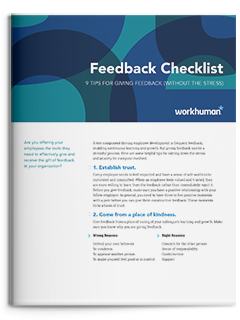

Some organizations wrongfully assume that enhancing software and processes alone will drive a necessary cultural change away from the traditional annual review. While it will certainly help, what you need is a framework to provide guidance to people managers around new habits, values, and expected behaviors that fuel a continuous performance management process focused on growth and development.
One of the most popular guiding frameworks is positive psychology, which focuses on building positive emotions, enabling people to innovate, grow, and inspire others. Get this guide to learn:
- Four ways you can leverage positive psychology in your organization
- Tips for building gratitude into performance management
- How to guide learning and grow connections with positivity and empathy
Where could you be more strategic in your total rewards spend? Are you funneling much of it into an annual bonus?
New research from Wharton shows that the annual bonus, a staple of many total rewards programs, can actually lead to unethical behavior, fuel turnover, and foster envy among co-workers. Sounds like unnecessary drama – and money wasted. More importantly, the performance boost of an annual bonus diminishes within weeks.
Read our e-book and learn a better way:
- Why employee recognition is a powerful management breakthrough
- How to get more bang for your buck – and sooner
- Ways to improve performance management, retention, and employer brand
A little rethinking and reallocation means you can increase your margins without adding a penny to your budget.
Does the idea of giving an employee constructive feedback make your heart race? Whether you’re a seasoned people manager or were recently promoted, weighing in on another person’s performance and behavior at work is understandably stressful.
But frequent feedback drives employee development, enables continuous learning and growth, builds trust, and improves communication among peers, people managers, and individual contributors. In short, feedback mastery is crucial to developing a successful team.
Use these nine tips to improve your feedback process and reduce anxiety for everyone involved. You’ll learn:
- How creating positive moments relates to constructive feedback
- The right and wrong reasons for providing feedback
- How storytelling can help build trust and camaraderie
